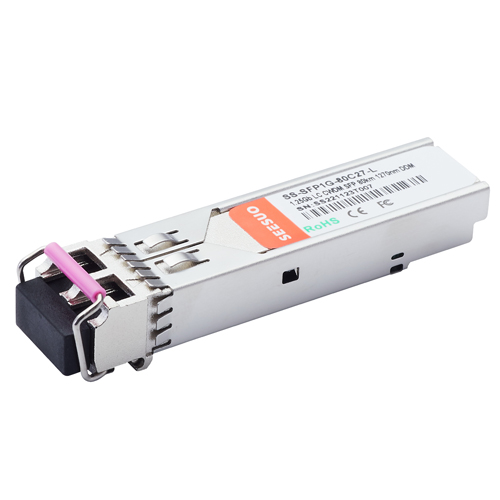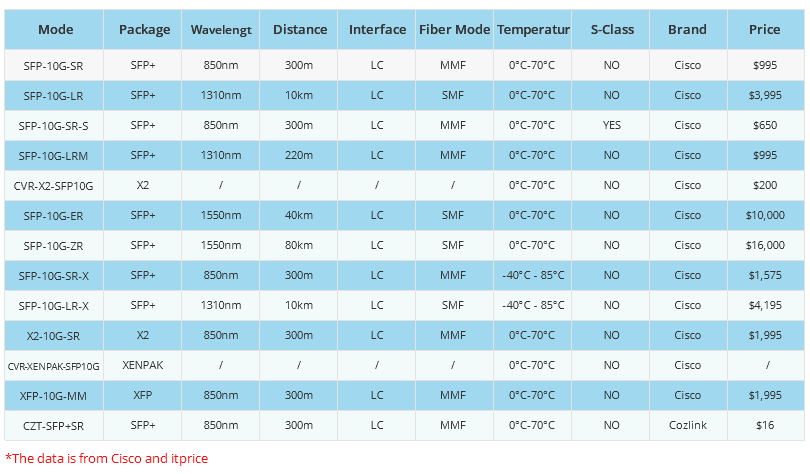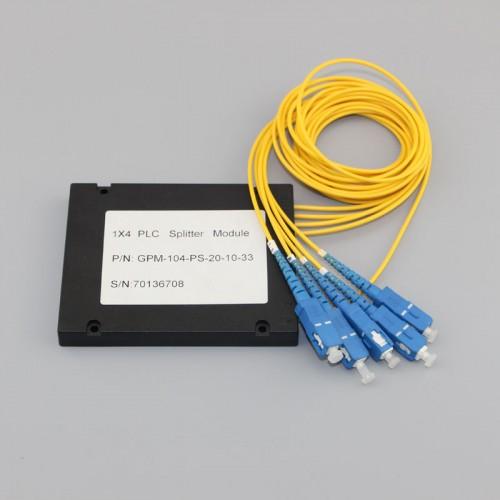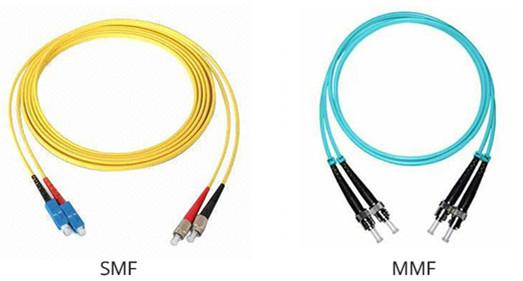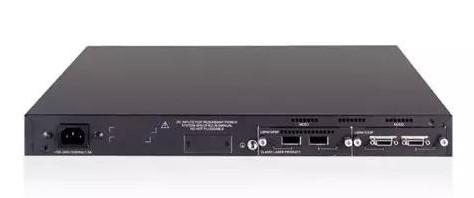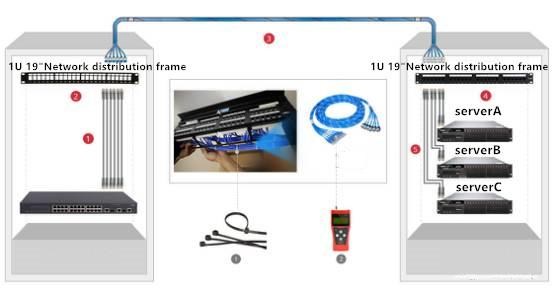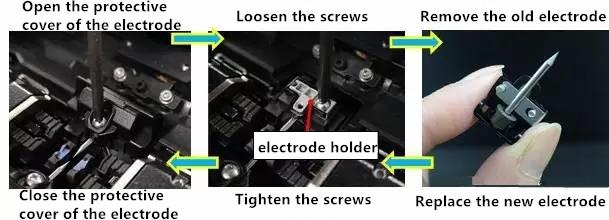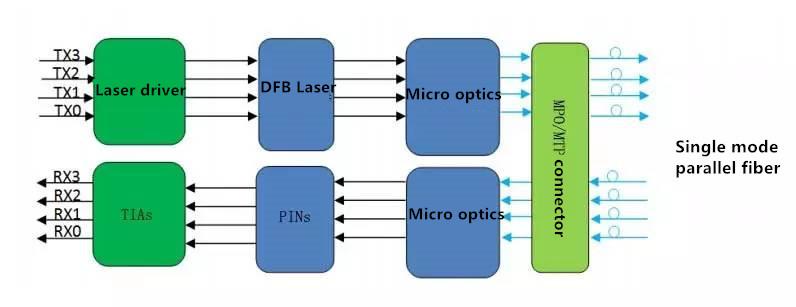- Related articles
- Optical Transceivers for Cisco N7K-M148GS-11= Switch
- The Things You Need to Know about 100BASE-CX Ethernet Standards
- All Cisco QSFP-40GE-LR4’s Information (Overview, Features, Datasheet PDF, Price, Specifica
- CWDM SFP+ Solution for Cisco Compatible
- All Cisco ONS-SI-622-L1's information (List price, Specs, Datasheet PDF, Compatibility mat
- What is QSFP transceiver?
- What Does LC Stand for in Fiber?
- Optical Transceivers for Cisco ME-3400-24FS-A Switch
- How to troubleshoot when network card stops working?
- All Cisco ONS-XC-10G-I2's information (List price, Specs, Datasheet PDF, Compatibility mat

Definition:
The small form-factor pluggable (SFP) is a compact, hot-pluggable transceiver used for both telecommunication and data communications applications. The form factor and electrical interface are specified by a multi-source agreement (MSA) under the auspices of the SFF Committee. It interfaces a network device motherboard (for a switch, router, media converter or similar device) to a fiber optic or copper networking cable. It is a popular industry format jointly developed and supported by many network component vendors. SFP transceivers are designed to support SONET, gigabit Ethernet, Fibre Channel, and other communications standards. Due to its smaller size, SFP obsolesces the formerly ubiquitous gigabit interface converter (GBIC); the SFP is sometimes referred to as a Mini-GBIC. In fact, no device with this name has ever been defined in the MSAs.
SFP transceivers are available with a variety of transmitter and receiver types, allowing users to select the appropriate transceiver for each link to provide the required optical reach over the available optical fiber type (e.g. multi-mode fiber or single-mode fiber). SFP modules are commonly available in several different categories:
LX - 1310 nm, for distances up to 10 km
EX - 1310 nm, for distances up to 40 km
What is different between LX and EX transceiver:
1000BaseLX is an extension of standard Ethernet technologies to gigabit-level network speeds. 1000BaseLX is implemented using either single-mode fiber-optic cabling or multimode fiber-optic cabling. Cable segment lengths depend on the cable grade used for single-mode fiber maximum segment length will be 5000 meters, for 50-micron multimode fiber maximum segment length will be 550 meters and for 62.5-micron multimode fiber maximum segment length will be 440 meters.
1000BaseLX is intended mainly for connecting high-speed hubs, Ethernet switches, and routers together in different wiring closets or buildings using long cabling runs. 1000BaseLX is most commonly implemented in a switch-switch configuration.
The 1000BASE-EX SFP operates on standard single-mode fiber-optic link spans of up to 40 km in length. A 5-dB inline optical attenuator should be inserted between the fiber-optic cable and the receiving port on the SFP at each end of the link for back-to-back connectivity.
Conclusion:
In a word, the 1000BASE-LX, 1000BASE-LH and 1000BASE-LX/LH are all refer to Gigabit Ethernet transmission. Among them, the 1000BASE-LX is a standard; the 1000BASE-LH and 1000BASE-LX/LH just are terms widely used by vendors. Other long haul transmission standards include 1000BASE-LX10, 1000BASE-EX and 1000BASE-ZX.
Please click to check more related concepts:
| Ethernet standard | Transceiver package |
| 1000BASE- T | SFP |
| 1000BASE | GBIC |
| 1000BASE-SX | |
| 1000BASE-X |













































